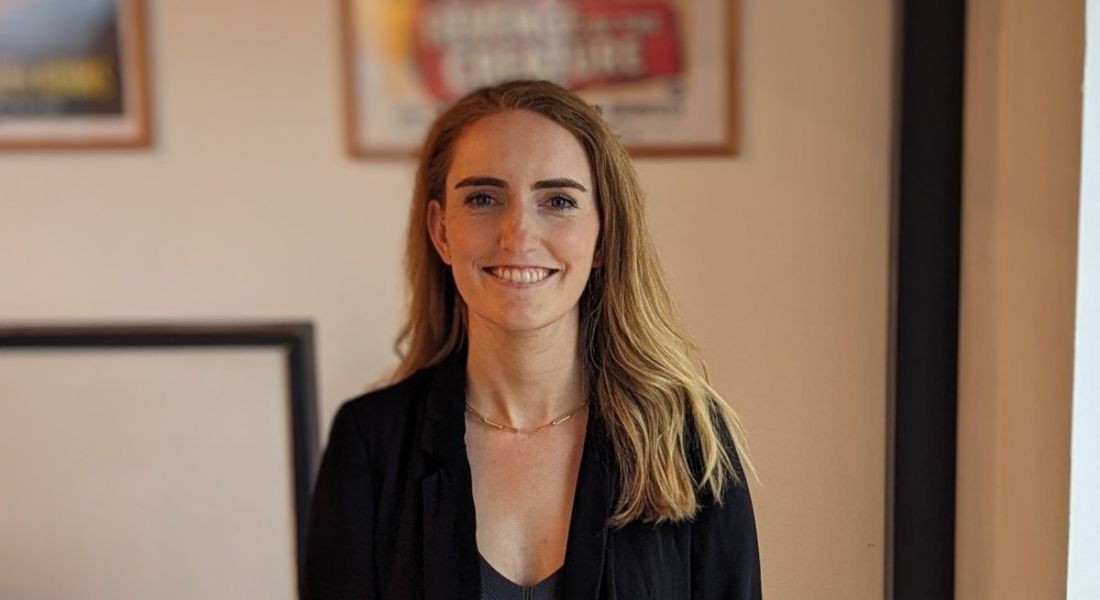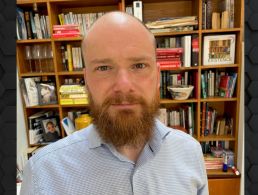Lisa Duncan, human capital manager at Deloitte, discusses the ways that companies can prepare their workplaces for the future of work.
Lisa Duncan is a manager working with the human capital team at Deloitte in Dublin. Having worked for more than six years in the organisation transformation team, Duncan has extensive experience in change management, culture and organisational design.
Duncan also spent eight months completing a secondment in Deloitte’s social impact team, working on a range of corporate responsibility initiatives.
With her range of experience in organisational management and workplace culture, we asked Duncan about her thoughts on the workplace of the future, namely the major challenges and opportunities, as well as the major influences on the future of work.
‘The advancements in technology can only provide benefits for the future workforce’
What are the major challenges and opportunities facing the workplace and workforce of the future?
The work, workplace and workforce of the future will face a range of challenges and opportunities driven by technological advancements, social changes and economic shifts.
These challenges include how to stay connected in a post-Covid world when so many of us work from home. Aligned to this is the challenge of upskilling when not in an office setting. The fact of sitting in an office and listening to what is happening around you is crucial in helping employees to soak up valuable information. Are we missing this opportunity in a hybrid/virtual environment? And building a work culture can be extremely difficult via a purely virtual environment – the physical environment of an office and connections made within it knit the behaviours and therefore the culture of an organisation together.
New opportunities include the flexibility of remote and hybrid working models. The option of when, what and how to accomplish your work is hard to beat. For example, I’m currently writing these answers in France as I enjoy our work-from-abroad policy and can travel to the Rugby World Cup games at the weekend. This flexibility has become expected, so much so, organisations may push people out if employers are looking to go back to the office full time.
The other major opportunity concerns technology. The advancements in technology can only provide benefits for the future workforce and workplace; streamlining processes, improving customer experiences and creating advancement in our home and work environments. For example, I’m curious to see how emerging technologies such as the metaverse may support a virtual workplace with training, meetings, events and networking.
We’re looking at a more automated future as AI and bots become more sophisticated. How do you think this will affect roles in your sector?
Working in consulting means I get the opportunity to work across a range of different sectors, and AI is providing opportunities across the board. I am no AI expert but I can see that automation of repetitive tasks through technologies like robotic process automation (RPA) and AI can significantly streamline workflows, reduce errors and free up employees for more valuable tasks – leading to increased efficiency and productivity.
I see AI-powered tools becoming particularly useful in the HR space, personalising learning experiences and providing tailored content and recommendations.
Chatbots and virtual assistants are becoming increasingly common, such as for onboarding, significantly improving employees first 90-day experience – the most important time period when joining a new company.
What new jobs do you think will come to the fore?
The jobs market is constantly evolving. As part of my current role, I’m researching new and emerging occupations within the sustainability space – where there are a huge number of new roles emerging such as growing demand jobs (increase in demand for jobs with these skills); transformed jobs (existing jobs where the requirements are expected to change); and new net-zero jobs (new jobs that will emerge and become prominent). Think of industrial engineers, data analysts, AI and machine learning specialists and R&D engineers, to name a few (depending on the sector in question of course).
The Deloitte Economics Institute predicts that there will be an increase in 300m jobs globally by 2050 as a result of an active green transition. Companies will need to ensure they are investing in the correct training and upskilling to ensure a fair and just transition.
Work-life balance is arguably central to job satisfaction. How might a hybrid or remote working model affect it?
As mentioned above, the flexibility around remote working is of huge benefit to a work-life balance.
Eliminating or reducing the daily commute can save employees valuable time and reduce stress. This time can be redirected towards personal activities, contributing to a better work-life balance.
Remote-work models often empower employees with greater autonomy in managing their work. They can choose when and how they work, which can lead to a better sense of control over their time and tasks.
However, this can also lead to blurred boundaries between work and personal life. Without a clear separation, it can be challenging to ‘switch off’ from work, potentially leading to overwork and burnout.
Remote work can sometimes result in communication challenges, making it harder to collaborate effectively with colleagues and managers. Miscommunication and delays can add stress and disrupt work-life balance. I’m currently working as the only Irish resource on a UK-led project and sometimes feel I’m missing out on those ‘watercooler’ conversations.
What will companies need to do to attract and support the best talent?
A huge number of Gen Zs recently joined Deloitte via the graduate programme and will continue to do so every September. This is a key group we need to be mindful of and ensure we’re meeting their needs.
We do this by offering competitive compensation and benefits packages. Salary is a significant factor for most jobseekers and will always come up on the top factors. Additionally, it is worthwhile to consider offering attractive benefits, such as healthcare, retirement plans and flexible work arrangements.
It is important to create a strong employer brand. Millennials and Gen Zs want to work for an organisation aligned to their values. Two in five Gen Zs and millennials rejected a job or assignment because it did not align with their values around societal and environmental impact, and diverse and inclusive culture.
Therefore, it is necessary to promote diversity and inclusion in your organisation. This includes not only hiring a diverse workforce but also creating an inclusive culture where everyone feels valued and supported.
Finally, you should be honest and transparent about your company’s values, goals and challenges. Transparency builds trust and attracts candidates who appreciate authenticity – I’ve noticed topics such as salary are no longer kept secret, but discussed openly amongst millennials and Gen Zs, so transparency is key.
What steps are you taking towards better diversity, inclusion and equality?
One initiative I am particularly proud to be a part of is Deloitte’s Development Internship Programme. This programme was launched in 2020 and supports those in the international protection process or in direct provision in Ireland to secure employment. Our main focus is to provide training and development opportunities to the interns during their placement, to help them to develop job skills, improve their CV and explore career growth areas for the future.
I also had the opportunity to join our internal social impact team on a secondment last year, where I fed into Deloitte’s social impact strategy, working with our charity partners and managing some of our brilliant volunteering programmes.
One of which was the BITCI Elevate pledge of which Deloitte is one of 61 companies who are working towards building more inclusive workplaces that are representative of all members of Irish society.
In your opinion and from your experience, what can companies do today to prepare for the work of tomorrow?
Stay in tune with your workforce’s wants and needs through regular pulse checks; be flexible and adaptable; focus on building a skills-based organisation so employees can be fluidly deployed across the business to match their interests and business priorities; and provide learning and development opportunities.
In summary, focus on the ‘S’ in ESG [environmental, social and governance] – these organisations unleash the individual’s potential and help them become healthier, more skilled and more connected to purposeful work and a sense of value and belonging.
10 things you need to know direct to your inbox every weekday. Sign up for the Daily Brief, Silicon Republic’s digest of essential sci-tech news.




